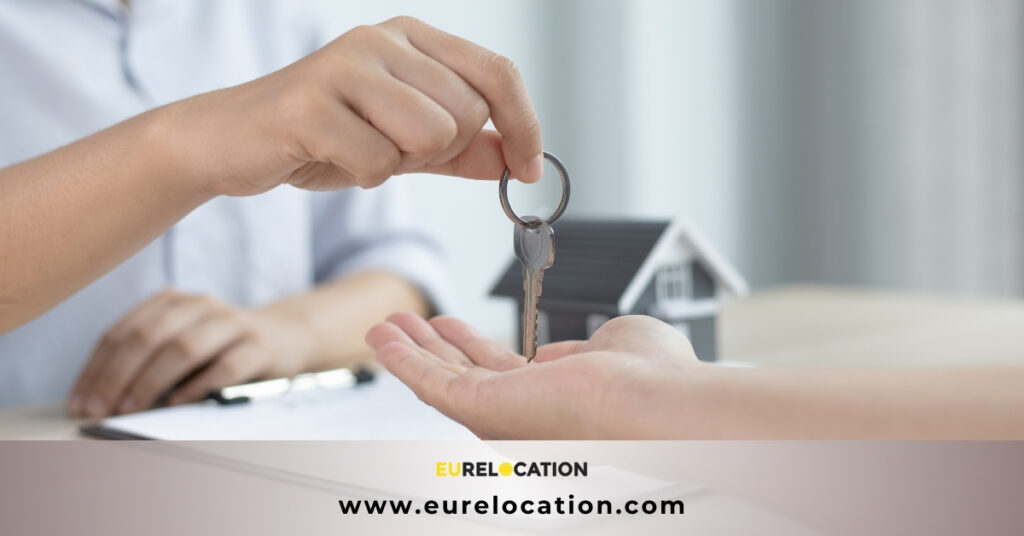Starting a new chapter in Europe comes with a big decision: renting vs. buying a house in Europe. Each choice has its own pros and cons. This guide will help you understand both options so you can make the best choice for your needs as an expat.
The European Housing Landscape
The housing market across Europe varies a lot. In Western Europe, property prices are usually higher compared to Eastern Europe. Popular cities and desirable areas often come with high prices. Additionally, some countries have specific rules for foreign buyers, so it’s important to know the local regulations when considering buying a house in Europe.
Renting as an Expat
Advantages of Renting:
- Flexibility: Renting lets you move easily if your plans change. It’s ideal if you’re not sure how long you’ll stay in Europe.
- Lower Initial Costs: Renting usually only requires a security deposit and the first month’s rent, which is less than buying a house.
- No Maintenance Worries: As a tenant, you don’t have to worry about repairs or maintenance—these are the landlord’s responsibilities.
- Simple Process: Renting is often faster and simpler than buying a house. It involves less paperwork and fewer legal issues.
Disadvantages of Renting:
- No Ownership: Rent payments go to the landlord, and you don’t own the property. You won’t have an asset to sell later.
- Possible Instability: Rent can go up, and landlords might sell the property or not renew your lease, which could affect your housing situation.
- Limited Customization: You might not be able to make changes to the property, like painting or renovating.
- Long-Term Costs: Renting can be more expensive over many years compared to buying a house in Europe.
Renting Across Different Countries:
Rental conditions differ by country. In Germany and Switzerland, renting is common with strong tenant protections. In Spain and Italy, owning a home is more typical, which might limit rental options.
Buying a House in Europe as an Expat
Advantages of Buying:
- Building Equity: When you buy a property, your monthly payments help you own more of your home over time. You build equity, which can be valuable in the future.
- Stability: Owning a home protects you from rent increases and the risk of having to move if a landlord decides to sell the property.
- Freedom to Renovate: As a homeowner, you can make changes and improvements to the property as you like.
- Potential Investment: In many areas, property values may go up, making homeownership a good investment. You might make a profit if you sell the property later.
Disadvantages of Buying:
- High Upfront Costs: Buying a house needs a large initial investment, including down payments, closing costs, and possibly legal fees.
- Maintenance Responsibilities: Homeowners must handle all repairs and upkeep, which can be costly and time-consuming.
- Market Risks: Property values can go up and down. A market downturn could mean your property is worth less than what you paid.
- Complex Process: Buying a house involves more paperwork and legal steps than renting, making it a more complicated process.
Considerations for Expats Buying Property:
- Legal Framework: Different countries have different rules for foreign buyers. Make sure you understand these regulations when considering buying a house in Europe.
- Financing Challenges: It can be harder for expats to get a mortgage. Some banks might have strict conditions or offer less favorable terms.
- Tax Implications: Property tax rates vary by country. Some places have high taxes, while others are more lenient.
- Currency Risks: If your income is in a different currency from the property’s currency, exchange rate fluctuations could affect your mortgage payments.
Buying in Various Countries:
The costs and processes of buying property can vary greatly across Europe. For example, buying a house in France might be straightforward but expensive, while in Portugal it might be cheaper but come with complex legal requirements. Research the market and regulations in your chosen country carefully.
Renting vs. Buying a House in Europe: Which Is Right for You?
Deciding between renting vs. buying a house in Europe depends on your personal situation. Think about:
- Duration of Stay: Renting is better for short-term stays, while buying is more suitable for long-term living.
- Financial Situation: Buying needs a bigger upfront investment but could be cheaper over time. Renting usually has lower initial costs.
- Income Stability: Make sure you have a stable income to handle mortgage payments. Owning a home means taking on financial responsibilities.
- Preparedness for Ownership: Homeownership involves managing repairs and dealing with market risks. Think about whether you’re ready for these responsibilities.
Making the Best Choice
Both renting and buying a house in Europe have their own advantages and challenges. Renting offers flexibility and lower initial costs but can be more expensive in the long run. Buying builds equity and offers stability but requires a larger financial commitment and comes with more responsibilities.
Carefully consider your circumstances, financial stability, and future plans before making a decision. Do thorough research on the housing market and seek professional advice if needed. Whether you choose to rent or buy, make sure your choice fits your lifestyle and goals as an expat in Europe









